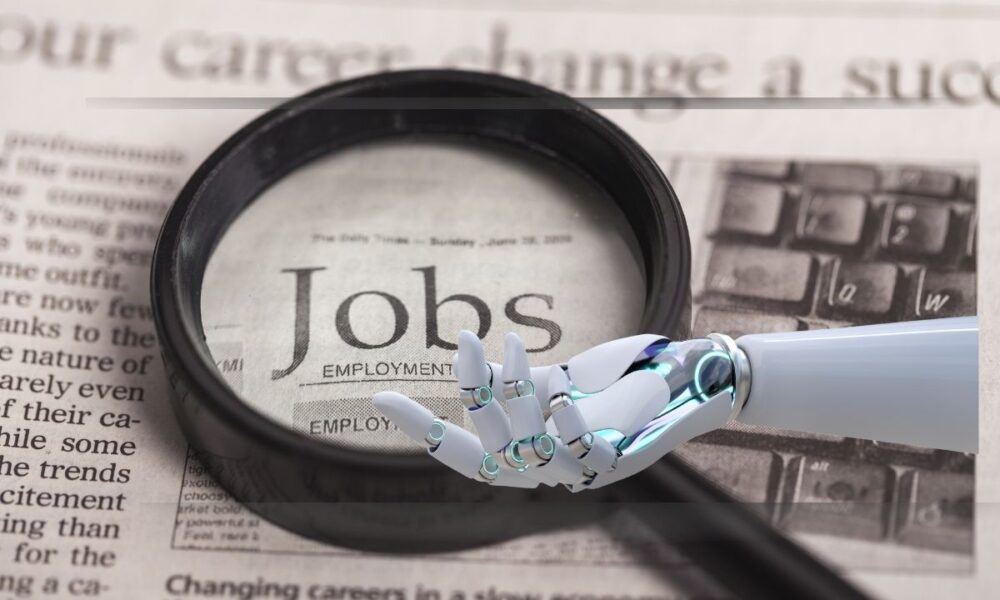The nation’s most powerful trucking union is calling foul on a fast-moving Senate proposal that would ban states from regulating artificial intelligence for the next decade.
“Buried in the reconciliation bill is a ban on all U.S. states from regulating AI or automation,” the official Teamsters Twitter account posted June 25. “That means no state oversight of driverless trucks, AI surveillance, or job-killing automation. It’s a power grab by Big Tech — and a direct threat to workers and states’ rights.”
Attached was a scathing letter from Teamsters General President Sean M. O’Brien, who warned that the moratorium language in the Commerce Committee’s draft “is a disaster for communities and working people” and urged senators to strip it from the bill.
Buried in the reconciliation bill is a ban on all U.S. states from regulating AI or automation. That means no state oversight of driverless trucks, AI surveillance, or job-killing automation. It’s a power grab by Big Tech — and a direct threat to workers and states’ rights.… pic.twitter.com/U0TjlE5F2j
— Teamsters (@Teamsters) June 25, 2025
“The unfettered intrusion of AI application into our workplaces and homes — including in autonomous vehicles, worker surveillance and monitoring — threatens communities nationwide,” O’Brien wrote. “Pure and simple, it is a give-away to Big Tech companies who reap economic value by continuing to operate in an unregulated void where their decisions and behavior are accountable to no one.”
The provision, part of President Donald Trump’s sweeping new tax and spending proposal, known as the One Big Beautiful Bill Act, was authored by U.S. Sen. Ted Cruz and has thus far cleared critical procedural hurdles, including a review by the Senate parliamentarian.
Although narrowed from a more sweeping House version that would have banned all current and future state-level AI laws, the revised Senate text would still require states to suspend their AI-related rules for 10 years or risk losing federal funding, including a portion of a $42 billion broadband program.
Cruz defended the language as measured and necessary, saying in a statement to Tech Brief, “As a condition of receiving a portion of a new $500 million federal investment to deploy AI, states that voluntarily seek these funds must agree to temporarily pause AI regulations … this light-touch regulatory approach to new technologies has been incredibly successful in promoting American innovation and jobs.”
Commerce Secretary Howard Lutnick echoed Cruz’s reasoning, posting on social media: “By creating a single national standard for AI, the bill ends the chaos of 50 different state laws and makes sure American companies can develop cutting-edge tech … without interference from anti-innovation politicians.”
President Trump’s One Big Beautiful Bill isn’t just vital for our economy, it is non-negotiable for our national security.
By creating a single national standard for AI, the bill ends the chaos of 50 different state laws and makes sure American companies can develop cutting-edge…
— Howard Lutnick (@howardlutnick) June 25, 2025
But opponents across the political spectrum argue the language amounts to a de facto preemption of local authority. Democratic Sens. Maria Cantwell and Ed Markey, along with Republicans Josh Hawley, Marsha Blackburn, and Ron Johnson, have expressed concerns.
Markey called the bill “an impossible choice between receiving broadband funding or protecting their residents from harms related to AI,” per The Washington Post.
Backlash has been especially fierce from labor leaders, including the Teamsters, who say their members are already on the front lines of AI-related disruption, particularly in the form of autonomous trucking.
As previously reported by The Dallas Express, Texas Teamsters have aggressively pushed back against the rollout of driverless semi-trucks along the I-45 corridor, where Aurora Innovation has begun commercial operations.
“Requiring human operators in driverless cars and trucks is not an unreasonable imposition; it is a basic necessity for economic prosperity and highway safety in our state,” said Brent Taylor, Southern Region vice president of the International Brotherhood of Teamsters.
Aurora’s autonomous trucks run between Dallas and Houston without any drivers onboard. The company states that the vehicles are equipped with multiple redundant systems and are monitored remotely, having traveled over 1,200 commercial miles without incident.
Critics remain unconvinced.
“The driverless trucks on the road right now cannot drive in most inclement weather, they’ve completed most of their miles in a simulator, and they are nowhere close to being ready for prime time,” said Robert Mele, president of Teamsters Joint Council 58 in Houston.
The Texas legislature had two proposed bills — House Bill 4402 and Senate Bill 2425 — that would have required trained human operators in all autonomous vehicles; both died.
Shannon Everett, founder of American Truckers United, described the combined pressure from AI and immigration as “an extinction-level event for American workers in the trades.”
He warned that automated trucks pose not just a labor threat, but also a security risk: “We suspect much like how people have learned to exploit the self-checkout process, they will learn how to exploit the automated trucks in an effort to steal more cargo at an unprecedented rate.”
For the Teamsters, the AI moratorium under consideration in Congress is more than just a budgetary footnote — it’s a red line.
“If adopted, this provision extinguishes local control,” O’Brien wrote. “On behalf of 1.3 million Teamsters, I strongly urge you to oppose this provision of the reconciliation bill.”
With the Senate floor vote looming, advocates on both sides are scrambling to line up support. The bill cleared the House by just one vote. A handful of Republican defectors-or holdouts—could decide whether the federal government puts the brakes on state-level AI oversight or leaves the road open for local laws.


